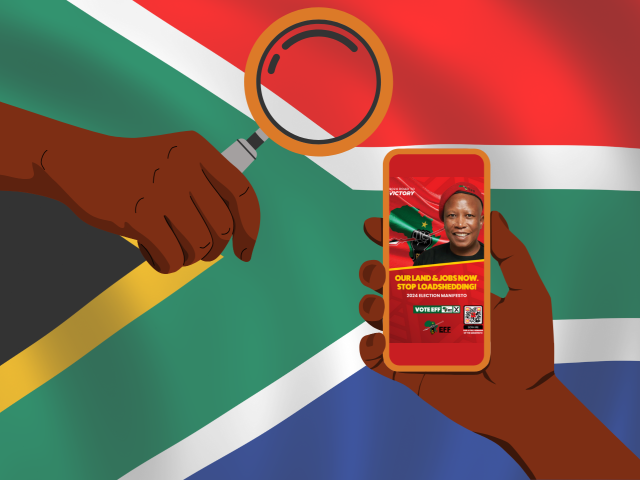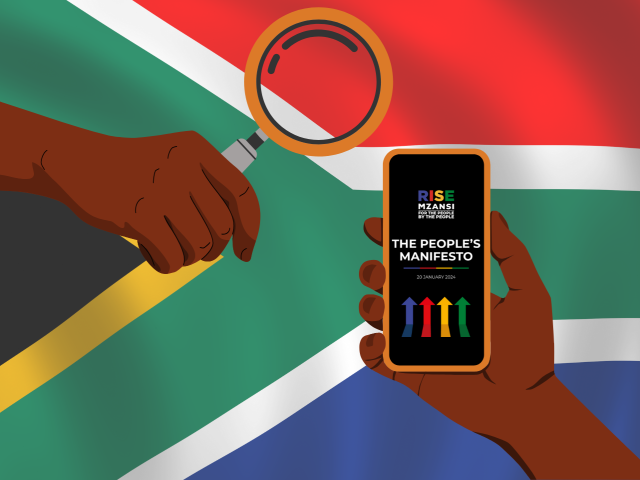As South Africa prepares for national elections in 2024, many bills, or draft laws, are making their way through parliament. Bills dealing with funding in politics, education and marriage will be among those closely watched.
As is often the case in public debate, claims about new legislation are common, because of the political, social, and economic impact they may have. Think of all the public and private interests that a new law will affect, or just the fear of change that we often have.
Not all claims about new laws are false, but they often mislead by misunderstanding or exaggerating the details. And the use of legal jargon can make it difficult to get the facts.
For example, in 2022 South African president Cyril Ramaphosa proposed amendments to the country’s health laws to manage the Covid-19 pandemic and any future pandemics. But some social media users were worried that the changes would give the government the legal authority to conduct routine surveillance and monitoring of private citizens by overriding privacy laws.
Such claims were false. Many misunderstood what private information the amended law wanted to collect.
As we gear up for a busy legislative and campaigning period, here’s how you can avoid sharing false claims about the law.
First, how are laws created in South Africa?
According to the Parliamentary Monitoring Group, a not-for-profit information service, the process of making a law sometimes starts with a discussion document called a green paper. This is drafted in the department dealing with the particular issue of the proposed law.
The paper is then published for further comments, suggestions or ideas.
This is also where a green paper becomes a white paper: a more refined discussion, drafted by the relevant department or a team appointed by the minister of that department.
Comments are invited and the relevant parliamentary committees will propose amendments. The paper is then sent back to the original ministry for discussion and a final decision. A white paper is usually used as the basis for a department to start drafting a bill.
A bill is a draft of a law, mainly prepared by a government department under the supervision of the minister or deputy minister.
Before a bill can become a law, it must be considered by the National Assembly and the National Council of Provinces, and then published in the Government Gazette for public comment.
Once a bill has successfully passed through all these stages, it goes to the president to be signed into law. Once signed, it becomes an act of parliament and “a law of the land”.
1. Be wary of sketchy information sources
Messages forwarded on WhatsApp or posts circulating on social media have often been around for a while, making it difficult to know the origin of the information and whether it can be trusted.
Be wary of messages sent to you by unknown or suspicious contacts and claims made by unofficial social media accounts (more on this shortly).
Take the Basic Education Laws Amendment Bill, commonly known as the Bela bill, for example. It has been the subject of intense debate after false claims were made on social media that the bill would allow the teaching of “things like masturbation” in schools. These claims were posted on social media without any attribution.
The focus of the bill was instead on the administrative processes of the department and schools.
Checking official websites, such as government parliamentary portals, or verified social media accounts of government officials, is the first step in looking up the information you’ve been sent or seen online.
Here are some ways to identify official accounts:
- They will often have a verification mark, often a blue check mark, next to their name. This means that the social media platform has confirmed the authenticity of the account. But be careful, some platforms do not do this consistently.
- Official accounts have consistent usernames across platforms.
- Many official websites link directly to their genuine social media account.
- In turn, the official account will in its bio link to a genuine website.
- If you are still not sure, contact the organisation or person directly. Most will be happy to point you in the right direction.
If the information you’ve received doesn’t have a credible source or seems dubious, you can ask the sender for the source. Encourage them to verify before forwarding.
2. Dig into the details
Look for red flags in the content of the message by scanning the actual text. Spelling or grammatical errors, while not foolproof, can be a sign that the information was hastily put together and should not be trusted.
Also analyse the context in which you received the message. Based on your knowledge of current events, is the claim likely to be true? Or does the message make sensational claims?
Those who share false information on social media often use ALL CAPS and trigger words or phrases such as “their agenda” or “violation” to play on your emotions and encourage you to reshare the claims. If a message makes you angry or scared, pause before sharing.
3. Be proactive: verify the information
If, after checking the source, content and context, it’s still not clear whether the claim is false or misleading, it’s time to verify the information.
Using any search engine, search for the main claim and see if it has been reported by other news organisations. Using keywords, such as the name of the bill, can help narrow down your search.
Let’s take the Tobacco Products and Electronic Delivery Systems Control Bill, which aims to regulate smoking and ban the sale of products to children. The bill has divided public opinion, with a host of claims being shared online about what will and won’t be allowed once it’s signed into law. But a quick read of the actual bill would clear this up.
Claims about the impact of a law, such as loss of jobs or revenue, may be trickier to verify. For these, head to fact-checking websites, such as Africa Check, to see if they’ve been debunked.
While doing your research, pay special attention to the date of publication. Outdated information can also be misleading.
4. Search for official government announcements
As laws are the responsibility of the government, it’s important to consult official announcements to help verify the information you see online.
Official government websites, social media accounts, and press releases offer important news or updates on new legislation, which can add context to misleading social media posts.
For example, shortly after the Unlawful Entry on Premises Bill was released for public comment, a widely shared video claimed that South Africans had “zero right to self-defence”. According to the woman in the video, a homeowner would not be legally able to defend themselves in a particular home invasion situation which she hypothesised.
“Your only duty is to inform the intruders that they are intruding and if you feel threatened you must … inform the [South African Police Service],” she says in the video.
But a Google search brings up the TikTok account of South Africa’s minister of justice, Ronald Lamola, where he humorously debunks the claim.
While checking government social media can be helpful, be wary of fake government Facebook pages. These can sometimes be difficult to identify. Read our guide to help you spot them.
5. Tools for your fact-checking belt
Claims about laws come in many forms, including video, text, images and voice notes, so it’s important to have the right tools to debunk each.
For images, such as fake documents, quotes, or misleading graphics about legislation, use tools such as reverse image search.
Images making the rounds on social media could also be manipulated by artificial intelligence (AI). You can look for clues in the image itself, like a watermark or disclaimer.
(Follow tips for spotting AI-generated images in this guide.)
Similarly, for videos that misrepresent legislation, you can also do a reverse image search on snippets of videos that include images or screenshots of the proposed law.
Voice notes are more difficult to fact-check as you’re not able to easily verify if the person on the other end is who they say they are. What’s more, you’re not able to easily verify from the voice note if what they’re saying is true.
When you receive a voice note from friends or family members about a new bill, remember the number one rule: do not share it if you’re even slightly unsure about where it came from and what it claims.
That said, there are a few things you can do to verify claims made in a voice note. Be aware of anonymity, look for context and check official channels. We have more tips in our guide to verifying voice notes here.







Add new comment